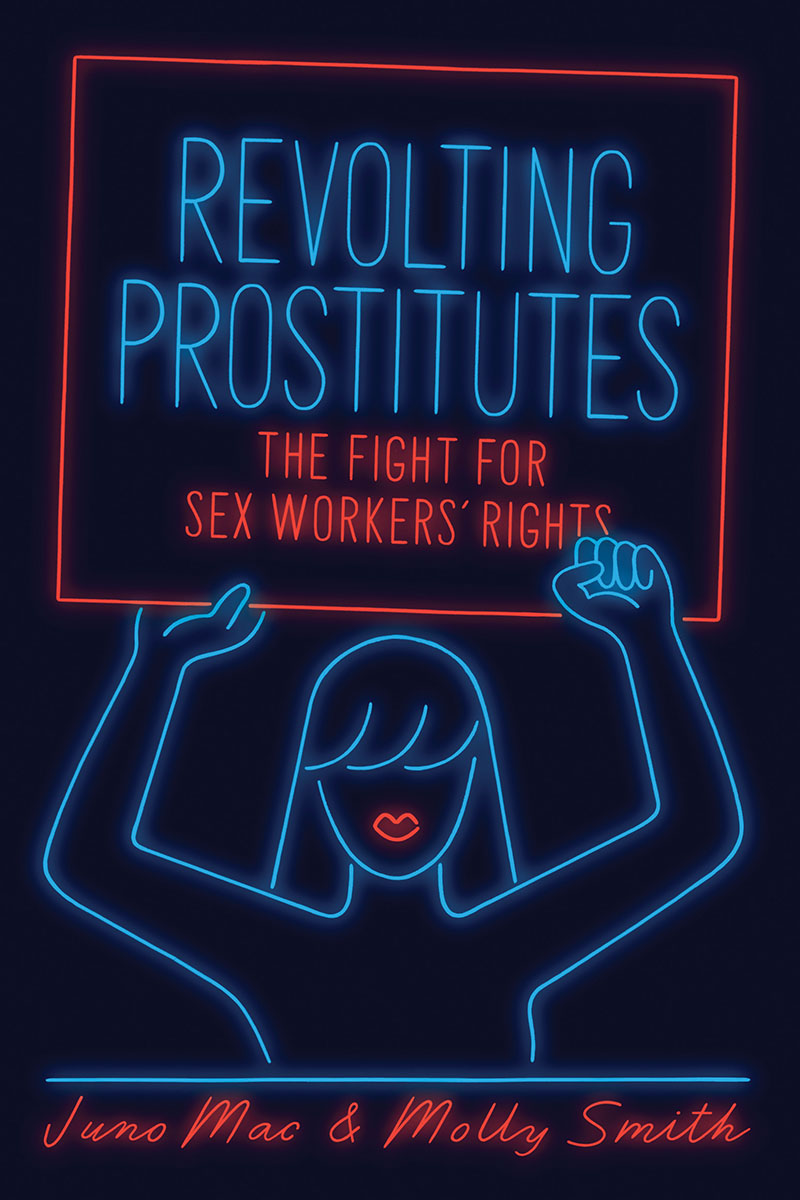Revolting Prostitutes

Writing for our sister publication Irish Legal News, Dublin solicitor Wendy Lyon examines the new book by sex workers and activists Juno Mac and Edinburgh-based Molly Smith.
From its striking cover – designed to resemble the outside of a Soho sex shop – and provocatively punny title, one might have expected a very different book. But, though the co-authors are writing from their own experiences, they are quick to assure readers in the opening pages that this book is “not a memoir”. Rather, it is a well-written, comprehensively researched (and footnoted) treatise on how different legal frameworks and policy approaches affect the lives of people in the sex trade.
The introduction sets out a list of other things that the book is not about. It is not a defence of prostitution as “empowering”; it is not grounded in liberal ideals of sexual freedom and the rights of consenting adults. Indeed, the authors accept as a starting point that “the sex industry is both sexist and misogynist”, and that many of the (mostly) women who enter it do so reluctantly and due to a lack of better options. None of this, they argue, justifies the almost universal urge to suppress the industry through some form of criminalisation – whether of sex workers, their clients, third parties, or any combination of the above.
Recognising the superficial appeal of punitive measures aimed at deterrence, the authors cleverly construct the book so that readers must first grapple with broader contextual factors. Noting the trend toward what sociologist Elizabeth Bernstein calls “carceral feminism”, which advocates criminal justice methods to secure feminist goals, they point out that “the police appear as the most benevolent protectors in the minds of those who encounter them the least”. To marginalised people like sex workers, they argue, police have traditionally been part of the problem, and cannot easily be accepted as part of the solution. This has significant implications for legal frameworks that give police an important role in attempting to “rescue” women from prostitution.
In a particularly impressive chapter titled “Borders”, the authors reject both mainstream anti-trafficking discourse and the insistence of many sex workers’ rights advocates that sex trafficking is readily distinguishable from voluntary sex work. Reductive depictions of ruthless criminals and naïve victims, they argue, deflect our attention from the role of government policy (in various areas including immigration, austerity, and free trade) in compelling young people to migrate – and rendering them vulnerable to exploitation when they do. While their ideal solution – the complete abolition of borders – will likely strike most readers as fantastical, they astutely point out that border controls as we know them are entirely a modern invention. Why, then, is abolishing prostitution often seen as a more realistic goal?
The chapters that follow consider the different legal frameworks in place around the world: partial criminalisation (Great Britain), full criminalisation (the USA, South Africa, and Kenya), client criminalisation (Sweden, Norway, France, and both jurisdictions of Ireland), legalisation (Germany, the Netherlands, and Nevada), and decriminalisation (New Zealand and New South Wales, Australia). Here, the lessons learned in the previous chapters are applied to show how punitive measures to reduce or control prostitution – even those ostensibly aimed at protecting sex workers or victims of trafficking – often have quite the opposite effect. Much of what the authors describe might seem counterintuitive, had they not so effectively laid out the groundwork in the first half of the book.
Critics may argue that the authors are western, educated women who sell sex indoors and thus cannot be presumed to speak for the more vulnerable in the sex trade. And indeed, they concede this themselves at the outset. In the concluding chapter, they note that full decriminalisation – their own preferred option, and that of the sex workers’ rights movement generally – will not be enough to address all the problems faced by migrants and people of colour who sell sex, or other particularly disadvantaged groups within the industry. They call for those voices to be centred in their movement, moving it beyond a mere campaign for changes to the laws governing prostitution.
It is difficult for a review to do justice to a book of this depth. The chapters that address the “Sex” and “Work” aspects of prostitution deserve to be read in their entirety, so thoroughly teased out are these two issues (arguably the most contentious within the debate). The writing is impressive throughout, and the referencing displays a laudable commitment to evidence-based advocacy. As always with a subject this polarising, there will undoubtedly be readers who come to this book already so firmly opposed that nothing said in it could ever change their mind; the rest, however, are nearly sure to find something to challenge their previously-held views. Revolting Prostitutes may not be a memoir, but for that it is no less memorable.
Revolting Prostitutes: The Fight for Sex Workers’ Rights by Juno Mac and Molly Smith. Published by Verso Books, (£14.99 Paperback) 288pp.
Wendy Lyon









